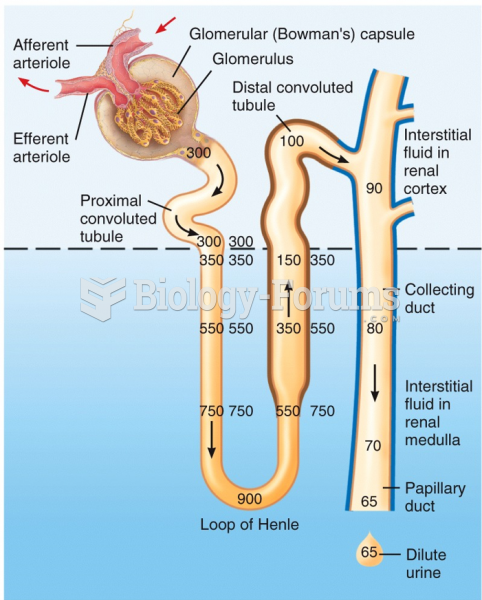|
|
|
The first documented use of surgical anesthesia in the United States was in Connecticut in 1844.
As many as 20% of Americans have been infected by the fungus known as Histoplasmosis. While most people are asymptomatic or only have slight symptoms, infection can progress to a rapid and potentially fatal superinfection.
About 100 new prescription or over-the-counter drugs come into the U.S. market every year.
Adolescents often feel clumsy during puberty because during this time of development, their hands and feet grow faster than their arms and legs do. The body is therefore out of proportion. One out of five adolescents actually experiences growing pains during this period.
Eat fiber! A diet high in fiber can help lower cholesterol levels by as much as 10%.







